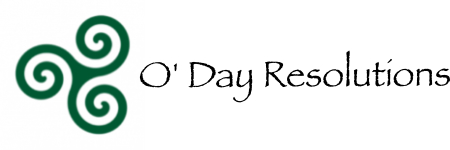A happy family is but an earlier heaven. George Bernard Shaw
I am often asked “what is elder mediation?” People are familiar with the concept of family mediation in a divorce or contested custody dispute. Mediation is also often used in workplace conflicts or personal injury cases. But not many people have heard of Elder Mediation. This is truly a shame, because with the aging baby boomers and the increase in longevity, the need for elder mediation is growing, even if it is not yet a widely known form of conflict resolution.
The easiest way for me to explain Elder Mediation is with a story:
A graceful widow in her 80s has three adult children whom she loves dearly. Unfortunately, while they love her, the relationship between the three siblings is not close. There is a certain amount of mistrust and antagonism between the three children. Thanksgiving is usually the only time they all get together with their mom. The rest of the time the children are spread around the country, doing their own thing.
One day in early April the eldest child, the son, who lives in New York, calls his two sisters to announce that he has had a conversation with mom and has decided that he will use his Power of Attorney to sell her house and move her to an assisted living. When the two younger sisters resist this decision, he explains that he is very concerned that mom has become too fragile and her memory is slipping. He is worried about the liability if she is driving and her safety if she is home alone.
The second child lives in California and was home to visit mom in Florida in January and protests that, when she was there, mom was perfectly fine. Mom told her she wanted to stay in the house that she lived in with her late husband forever. This daughter says that she knows the son was always too controlling and now just wants to control mom’s money. The siblings reply that the middle child was always a bit of a flake and never really did want to consider the hard truth of mom getting older and frail.
Finally, the youngest daughter pipes up that she has also spoken with mom and the two of them have decided that the youngest should sell her home and move in mom to help her out. This would mean quitting her job but mom would pay her to run errands and fix her meals. Mom even promised she could have the family house after mom passed if she would take care of her in her golden years. The other two protest that the youngest is just plotting to take over the house and that this was not what dad wanted before he passed.
The truth is, that when each child calls mom and talks about their plans to care for her, she is agreeable to each scenario. She usually responds with “your right darling. I will tell your siblings that you are right” but then, when the next call comes she agrees with the plans of that child. Her main concern is to limit conflict in her life and to try to have as many peaceful Thanksgiving as she may have left.
In many families, the son may use the Power of Attorney to list the house and start looking for a way to move mom to an assisted living facility. The sisters may then try to intervene by filing for a guardianship or trying to convince mom to revoke the power of attorney and issue a new one to one of the girls. Lawyers are hired by each side and considerable money is spent fighting between the siblings. Meanwhile the animosity between the children grows to hatred and there are no more Thanksgivings together at all.
The other alternative is to seek out an elder mediator to help. With elder mediation we bring everyone together to examine all of the issues and seek out the best solution that will meet as many of the interests as possible. The participants consult with outside professionals such as estate planning attorneys, geriatric care specialists, community resource professionals and financial planners to have all of the information that is necessary. Elder mediation provides a confidential process to find solutions that are respectful of everyone and considers everyone’s concerns. The mediator is a specially trained neutral professional who does not impose any decisions but rather seeks out alternatives that best meet the needs of the elder and the family.
The elder mediator can address a multitude of issues for families in transition including, caregiver issues, financial management, living arrangements, health care planning, driving and safety issues, family business planning and estate and trust issues. If you think elder mediation can help your family, make sure to look for a professional certified as a mediator, with training in elder issues and experience with the complexities of family dynamics.

